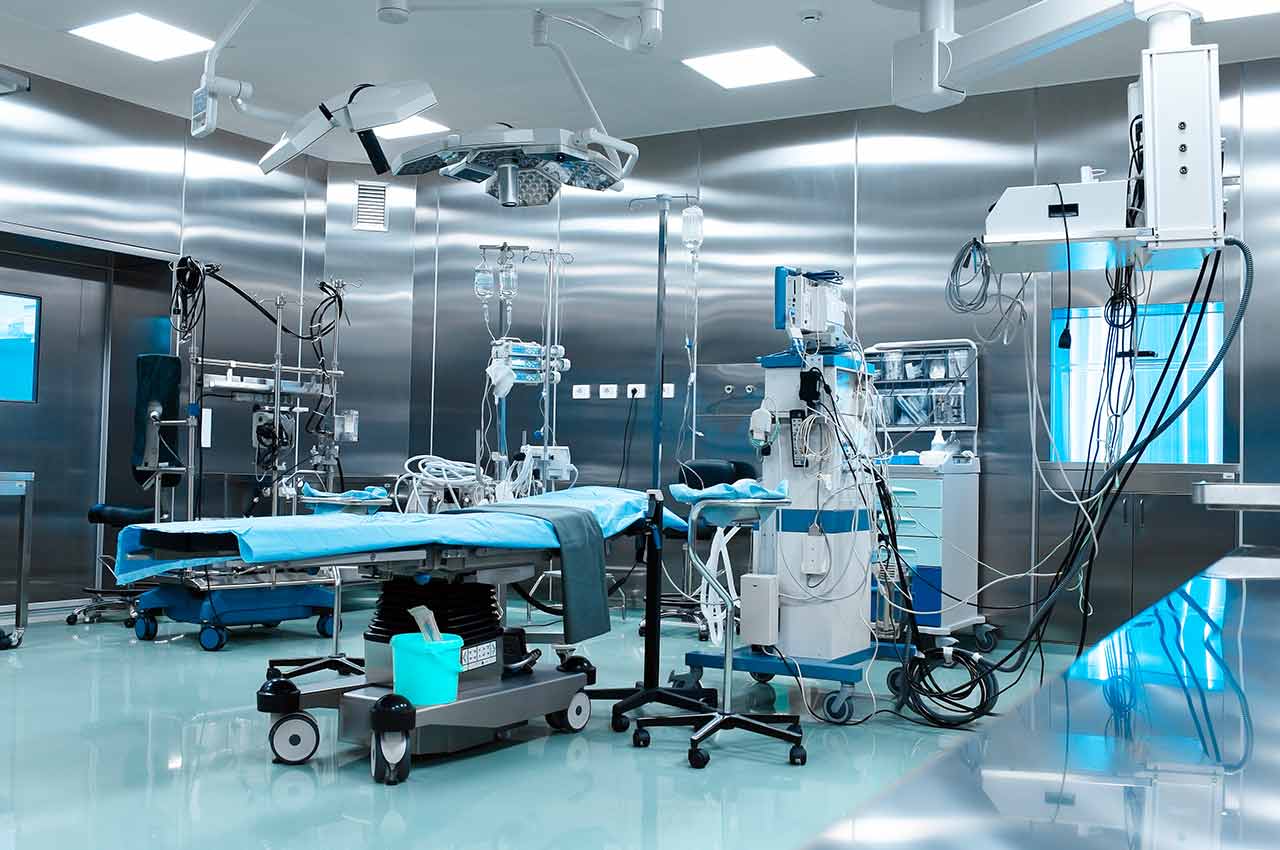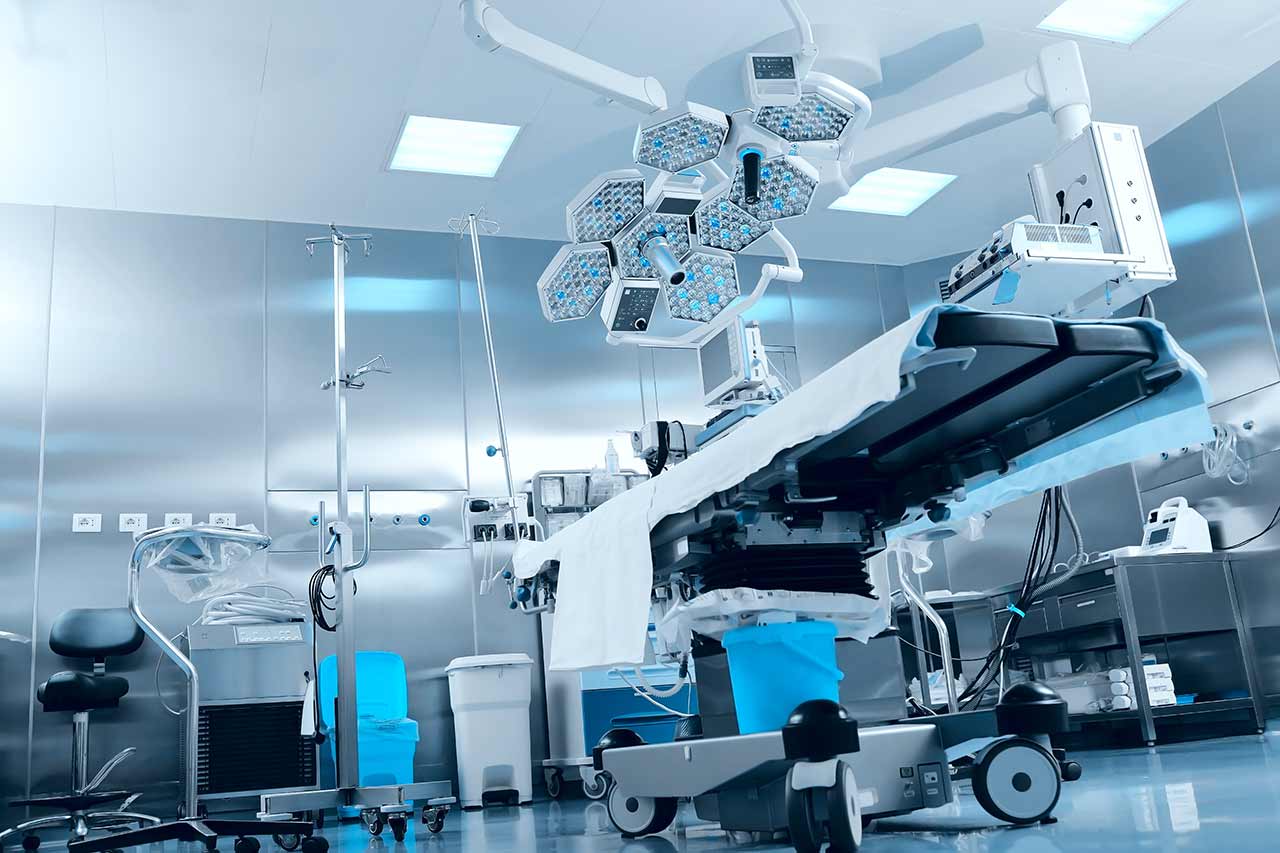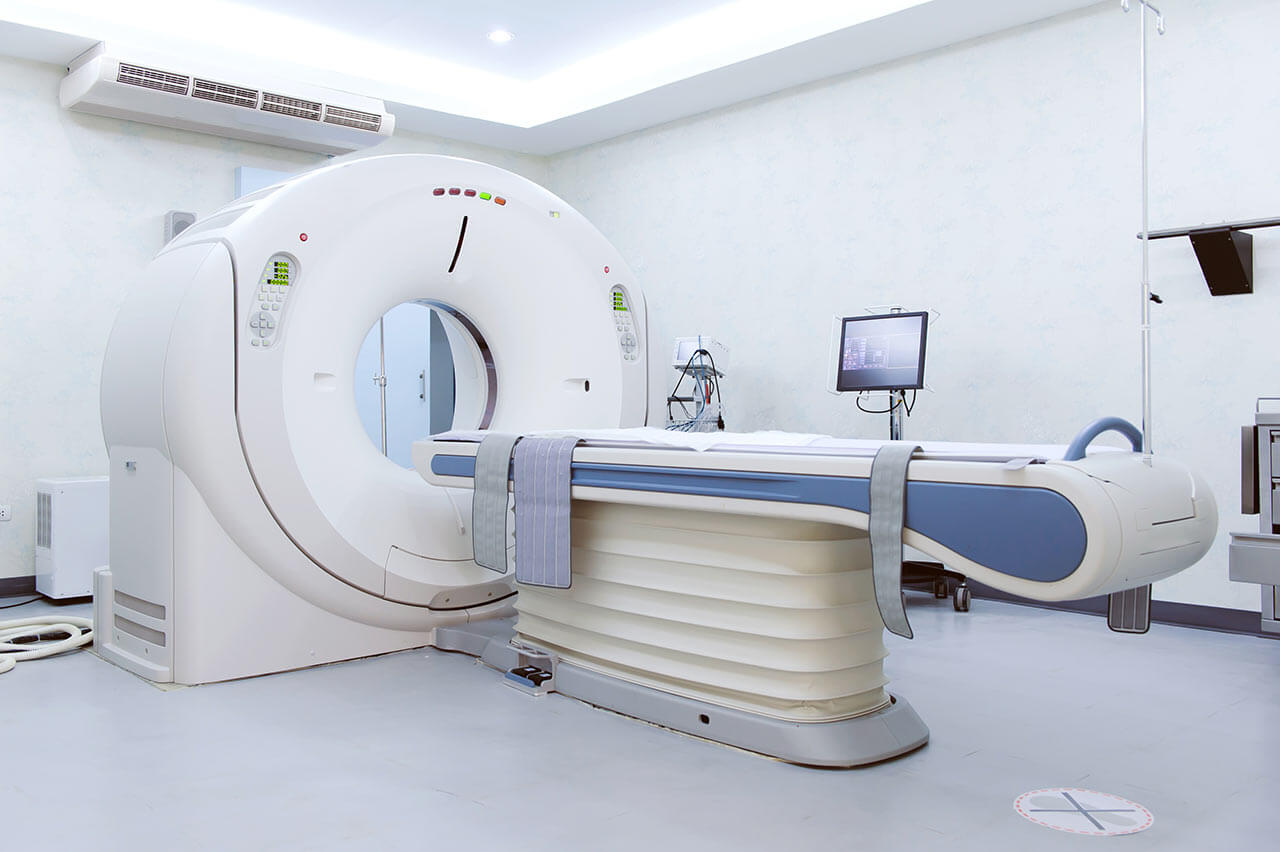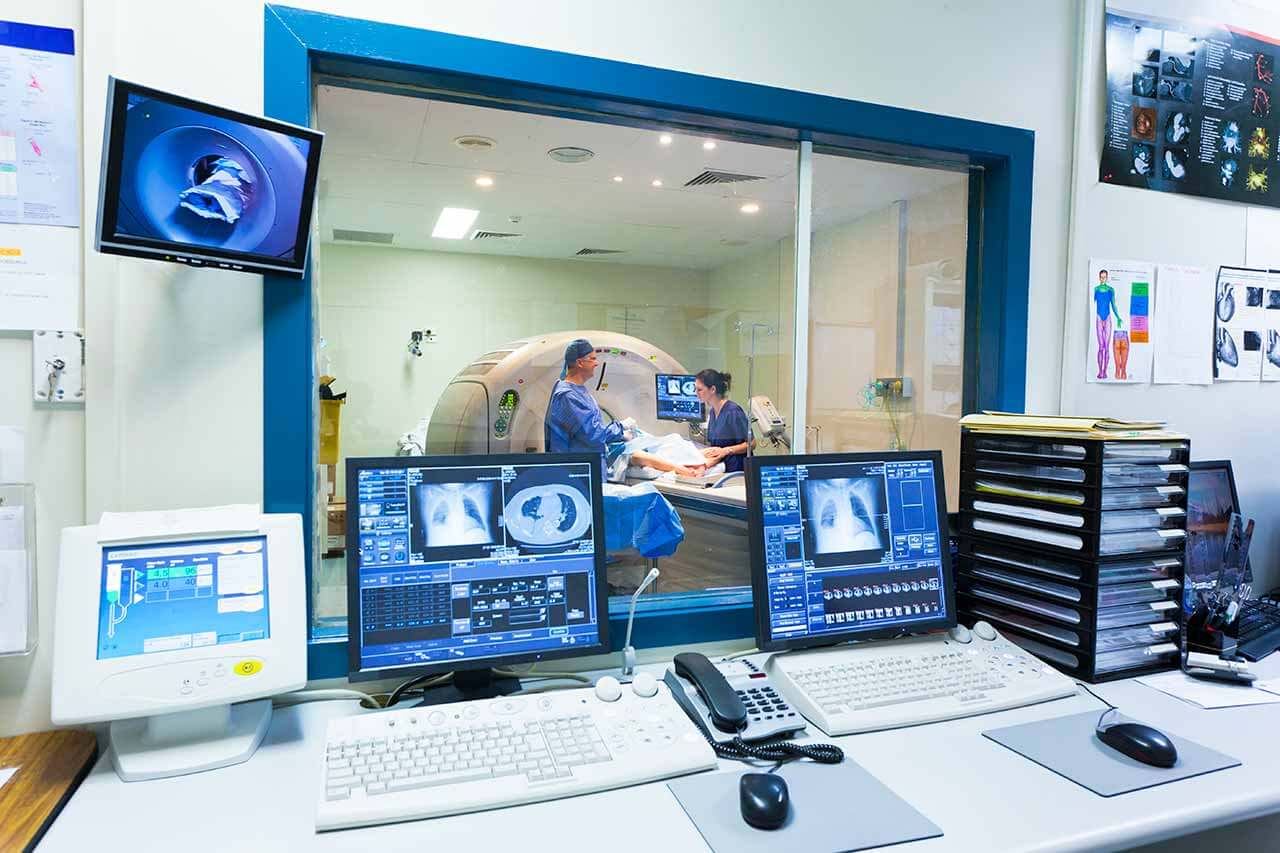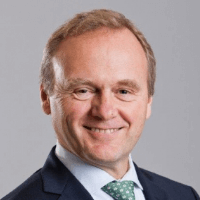
The program includes:
- Initial presentation in the clinic
- case history collection
- general clinical examination
- laboratory tests:
- complete blood count
- biochemical analysis of blood
- TSH-basal, fT3, fT4
- differential blood count
- inflammation indicators (CRP, ESR)
- indicators blood coagulation
- CT/MRI scanners of the complete organism
- needle biopsy of the bone marrow
- treatment with iron supplements in conjunction
with blood transfusion - symptomatic treatment
- nursing services
- full hospital accommodation
- explanation of individual treatment plan
Required documents
- Medical records
- Bone marrow biopsy results (if available)
Service
You may also book:
 BookingHealth Price from:
BookingHealth Price from:
About the department
The Department of Hematology, Oncology, Hemostaseology, Rheumatology and Infectology at the University Hospital Frankfurt am Main offers the full range of medical services in the fields of its specialization. The department specializes in the diagnostics and treatment of all diseases of the hematopoietic system, systemic treatment of solid tumors, infectious diseases, including outpatient admission of patients with HIV, blood clotting disorders, as well as the entire clinical and morphological group of rheumatic diseases. The department is actively engaged in research activities and regularly implements the latest medical developments into clinical practice, thereby providing treatment in accordance with the most advanced scientific achievements. The department is headed by Prof. Dr. med. Hubert Serve.
In the field of hematology and oncology, special attention is paid to the diagnostics and treatment of acute and chronic leukemia, malignant lymphoma, as well as the treatment of such solid tumors as lung cancer, gastrointestinal tumors, renal cell carcinoma, as well as soft tissue and bone sarcoma. The department includes the Transplant Center, which offers stem cell and bone marrow transplantations. With an annual number of 80-100 transplantations, the department is one of the leading centers of this kind in Germany. It transplants both autologous (patient’s own) and allogeneic (donor) stem cells. In order to provide medical services in accordance with the latest medical achievements, the department actively cooperates with the University Cancer Center Frankfurt.
Among a wide range of rheumatic diseases, the focus is on inflammatory systemic diseases. These include rheumatoid arthritis, reactive arthritis, spondyloarthropathies (for example, Bechterew's disease, psoriatic arthritis), gouty arthritis, hemochromatosis, systemic collagenoses (for example, systemic lupus erythematosus, polymyositis, dermatomyositis, systemic scleroderma), vasculitis, and Behcet's disease, etc. The patients are offered the very latest diagnostic and therapeutic options, including low-field MRI, joint puncture, monoclonal antibody therapy and innovative therapies within the clinical trials.
All pathologies of the hematopoietic system are treated within the specialized Hemostaseology/Hemophilia Center. This center has long experience in comprehensive diagnostics, therapy and counseling of patients with such diseases of the hematopoietic system as hemophilia, von Willebrand-Jürgens syndrome, rare blood clotting disorders, etc.
The department’s medical service range is complemented by infectology. It successfully treats all severe, complex and unspecified infectious diseases caused by bacteria, fungi or viruses. The department's specialists have particular competence in the treatment of tropical diseases, infectious complications of immunosuppression, bacteremia and endocarditis, infections with resistant pathogens, fever of unknown origin, all stages of HIV infection, etc.
The diagnostic and therapeutic options of the department include:
- Hematological and oncological pathologies
- Acute lymphocytic leukemia
- Acute myeloid leukemia
- Chronic lymphocytic leukemia
- Chronic myeloid leukemia
- Chronic myeloproliferative diseases
- Myelodysplastic syndrome
- Multiple myeloma
- Hodgkin's disease
- Non-Hodgkin's lymphoma
- Bronchogenic carcinoma
- Renal cell carcinoma
- Pancreatic cancer
- Sarcomas
- Other solid tumors
- Special therapeutic options
- Inpatient / outpatient chemotherapy
- Allogeneic stem cell transplantation from a related or unrelated donor
- Autologous stem cell transplantation
- Immunotherapy
- Molecular types of therapy with targeted effect on the tumor cells
- Phase I-II clinical trials for the development of innovative medicines
- Rheumatic diseases
- Rheumatoid arthritis
- Psoriatic arthritis
- Systemic scleroderma
- Spondyloarthropathies (for example, ankylosing spondylitis)
- Collagenoses (for example, systemic lupus erythematosus)
- Vasculitis
- Special therapeutic options
- Autoimmune diagnostics
- Arthrosonography (ultrasound examination of the joints)
- Low-field MRI
- Joint puncture
- Monoclonal antibody therapy
- Infectology
- Tropical diseases
- Infectious complications in immunosuppression
- Bacteremias and endocarditis
- Infections with resistant pathogens
- Fever of unclear genesis
- Tuberculosis and atypical mycobacterioses
- All stages of HIV infection
- Diseases, which require the isolation of patient, such as Lassa fever
- Pandemic infections
- Complex surgical infections
- Special therapeutic options
- Treatment of chronic and acute, local and systemic infectious diseases
- Chemotherapy and preparation for bone marrow transplantation in patients with HIV infection and malignant lymphomas
- Counseling of HIV-infected pregnant women
- Comprehensive treatment of patients with comorbid pathology (hepatitis, HIV and other infectious and concomitant diseases)
- Diagnostics and treatment of fever of unknown origin
- Phase I-II clinical trials for the development of innovative medicines
- Hemostaseology
- Hemophilia, including diagnostics and genetic counseling of hemophilia carriers
- Von Willebrand-Jürgens syndrome
- Rare coagulation disorders, for example, deficiency of factors II, V, X, XI or XIII
- Peri- and postoperative coagulation disorders, for example, DIC syndrome or hyperfibrinolysis
- Afibrinogenemia, dysfibrinogenemia and hypofibrinogenemia
- Thrombocytopenic purpura
- Changes in the functional state of platelets
- Antiphospholipid syndrome, protein C and S deficiency
- Diagnostics and treatment of arterial and venous thrombosis
- Family diagnostics and counseling on the risk of thrombosis
- Complications during pregnancy (miscarriages and premature labor, HELLP syndrome, preeclampsia, etc.)
- Blood clotting disorders during pregnancy and in the postpartum period
- Antiplatelet therapy (including the introduction of direct oral anticoagulants)
- Diagnostics and treatment of other disorders and diseases
Curriculum vitae
- 1988 Completion of medical studies at the University of Heidelberg.
- 1988 Doctorate and admission to medical practice.
- 1988 Assistant Physician, University Hospital Rechts der Isar, Technical University of Munich.
- 1990 Assistant Physician, University Hospital Ulm.
- 1991 Postdoctoral Fellow, Department of Molecular Biology, Sloan Kettering Institute, NY.
- 1994 Assistant Physician, University Hospital Benjamin Franklin at the Free University Berlin.
- 1997 Board certification for Internal Medicine.
- 1997 Senior Physician, Department of Internal Medicine A at the University Hospital Muenster.
- 2000 Venia Legendi for Internal Medicine at the Faculty of Medicine, University of Freiburg.
- 2002 Board certification for Hematology and Oncology.
- 2002 Appointment as Professor for Internal Medicine at the University of Muenster.
- Since 2007 Chief Physician of the Department of Hematology, Oncology, Hemostaseology, Rheumatology and Infectology at the University Hospital Frankfurt am Main.
- Since 2008 Scientific Director of the University Cancer Center Frankfurt (UCT).
- Since 2011 Regional Coordinator, Frankfurt/Mainz of the German Consortium for Translational Cancer Research (DKTK).
Honors and Awards
- Research Fellowship from the German Research Foundation (DFG), Memorial Sloan Kettering Cancer Center, NY.
- 1995 Research Prize from the University Hospital Benjamin Franklin.
- 1996 Curt Meyer Memorial Prize from the Berlin Cancer Society.
- 2000 "Best Abstract" at the Annual Meeting of the German/Austrian Society for Hematology and Medical Oncology (DGHO, OeGHO).
Photo of the doctor: (c) Universitätsklinikum Frankfurt
About hospital
According to the reputable Focus magazine, the University Hospital Frankfurt am Main ranks among the top German medical facilities!
The hospital was founded in 1914 and today is a well-known German medical facility, which combines rich traditions and scientific innovations. A medical team of more than 6,500 employees cares about the health of patients around the clock, ensuring them with the highest standards of medical care and best possible safety.
The hospital has 32 specialized departments and more than 20 research institutes, which have all the necessary resources for the provision of the most effective care for any patient. The hospital has 1,488 beds for inpatient medical care. The medical facility diagnoses and treats more than 51,000 inpatients and about 44,800 outpatients every year. Due to the demonstration of outstanding treatment results, the number of patients seeking medical care here increases significantly annually.
The hospital presents all areas of modern medicine, whereas its special competence lies in neuroscience, oncology, cardiovascular medicine, cardiac surgery and other fields. Many treatment methods available here are unique not only in Europe, but also internationally.
Photo: (c) depositphotos
Accommodation in hospital
Patients rooms
The patients of the University Hospital Frankfurt am Main live in comfortable rooms made in modern design and meeting the highest standards of European medicine. Each room is equipped with an ensuite bathroom with a toilet and a shower. The standard room includes a comfortable, automatically adjustable bed, a bedside table, a wardrobe, a table and chairs for receiving visitors and a TV. If desired, patients can use Wi-Fi. The patients can also stay in the enhanced-comfort rooms.
Meals and Menus
The patient and his accompanying person have a daily choice of three menus. If for any reason you do not eat all the food, you will be offered an individual menu. Please inform the medical staff about your dietary preferences prior to the treatment.
Further details
Standard rooms include:
Religion
Religious services are available upon request.
Accompanying person
During the inpatient program, an accompanying person may stay with you in a patient room or in a hotel of your choice.
Hotel
During the outpatient program, you may stay in a hotel of your choice. Managers will help you choose the most suitable options.
